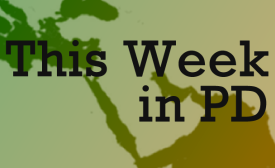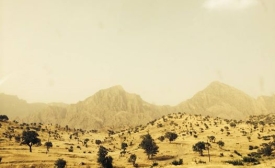kurds

As Al Qaeda-inspired ISIS continues its violent march towards Baghdad, the group's social media outreach is being closely examined.

The rarity and significance of Kurdistan’s stability are underscored by events of this week.
Sitting on some of the world's largest untapped oil and natural gas reserves, the region is experiencing a surge in investment and construction. Five-star hotels are dotting the skyline and luxury condo complexes with names like "American village" are opening on the outskirts of the city.
"Quick, run, run," shouts Kurdish commander Roshna Akeed, as she orders two young female fighters to move toward a brick wall that represents the front line between Kurdish forces and al Qaeda-linked militants in this northern Syrian town. Six male Kurdish fighters are already guarding this part of the front. They have removed some of the bricks from the five foot-high wall, and their guns peak through small holes toward the enemy, which is positioned in a hamlet roughly one-third of a mile away.
The "zero problems" policy was founded upon two main premises: that trade and economic development would push long-festering ideological and security conflicts aside, and that Turkey's historical and cultural legacy is a soft-power asset, not a liability.
American Voices works in countries emerging from isolation or conflict, said John Ferguson, the founder of the organization...“In many cases, we are the first Americans people have seen who are not diplomats or soldiers,” Ferguson said.
Washington’s close Kurdish allies cracked down hard. After 62 days of street protests, 10 people were dead. The carefully crafted image of Kurdistan as a democratic island in an ocean of regional dictatorship was in tatters.
“Five million Kurds in Iraqi Kurdistan have become a beacon of light for the 35 million Kurds who live in Turkey, Syria, and Iran. That beacon of light is keeping us awake at night and is filling our hearts with hope.”
-Kani Xulam, Director of the American-Kurdish Information Network







